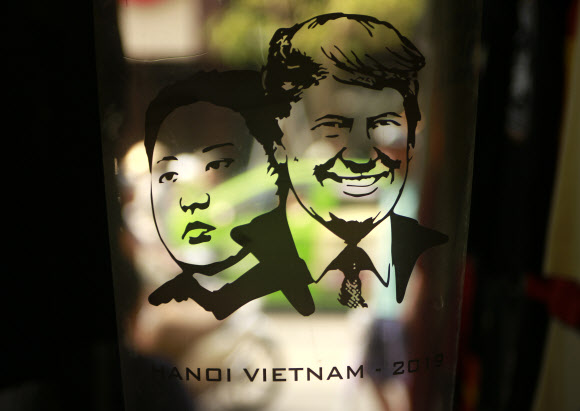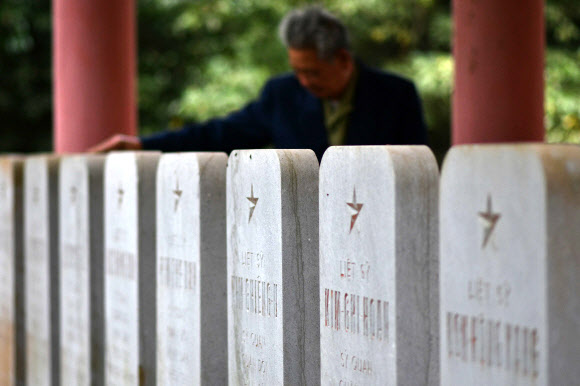 |
|
A print design with portraits of U.S. President Donald Trump, right, and North Korean leader Kim Jong Un, at a custom t-shirt shop in Hanoi, Vietnam, on Thursday, Feb. 21, 2019. Hanoi is gearing up to host the second Trump-Kim summit scheduled for 27-28 February. (Hanoi/AP)
|
Trump and Kim to have one-on-one meeting, expanded meeting and meal together
A senior official in the US government said on Feb. 21 that the working-level negotiations in Hanoi between US State Department Special Representative for North Korea Stephen Biegun and North Korea State Affairs Commission Special Representative for US Affairs Kim Hyok-chol would continue until shortly before the second North Korea-US summit. The same official said that US President Donald Trump and North Korean leader Kim Jong-un’s itinerary on Feb. 27-28 would include a one-on-one meeting, an expanded meeting and a meal.
During a telephone briefing on Thursday, a US government official said that Trump and Kim would be meeting on Feb. 27 and 28 to deal with the full agenda. The specifics of the format would be revealed later, the official said, while noting that they would be similar to the summit in Singapore in June 2018. The official said that the two leaders would have a one-on-one meeting as well as a meal and an expanded meeting in which they will be joined by delegations from both sides.
The first summit in Singapore last year, which lasted a single day, consisted of an informal chat between the two leaders in the morning, a one-and-one private meeting and a work luncheon. Since this summit will be taking place over the course of two days, the two leaders are likely to have an informal chat or a formal dinner on Feb. 27 and then have a private conversation and an expanded meeting on Feb. 28, the second day of the summit.
The US government announced that Biegun had arrived in Hanoi on the morning of Feb. 21 and that he’d initiated deliberations with his North Korean counterparts. Their discussion is aimed at achieving progress on the four points agreed upon during the first summit in June 2018, namely improving North Korea-US relations, creating a peace regime, denuclearization and the repatriation of the remains of US soldiers.
When asked whether any agreements had been reached so far, the official said that individual agreements meant little without an agreement on all points and said that the two sides would remain in close negotiations until Trump arrives next week. Trump will reportedly be arriving in Hanoi on Feb. 26. The official would only say that the two sides are still negotiating the option of setting up liaison offices.
 |
|
This photograph taken on February 12, 2019 shows Vietnamese veteran Duong Van Dau viewing the tombstones of North Korean pilots killed in aerial battles by US pilots during the Vietnam War at a war memorial in Bac Giang province. - The bodies of the 12 fighter pilots and two technicians were buried here before they were repatriated in 2002, but the rarely-visited site amid rice fields remains a symbol of an era when Hanoi relied on Pyongyang for help. ((Hanoi/AFP)
|







